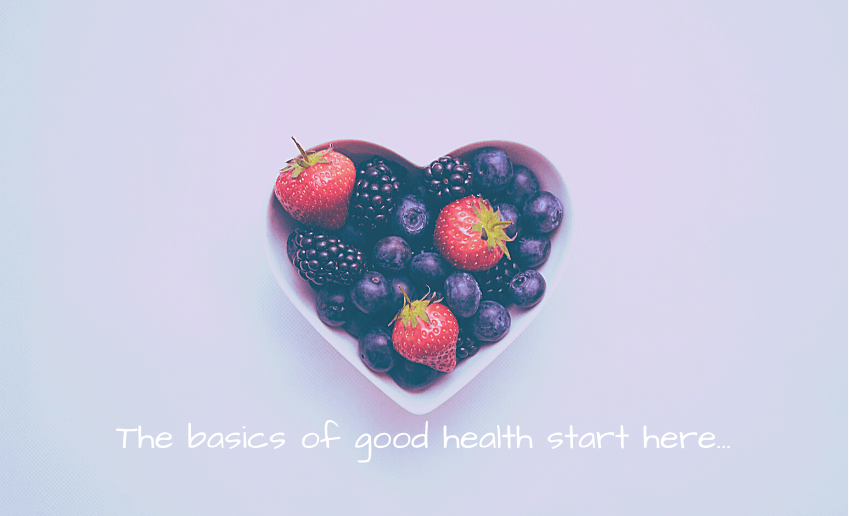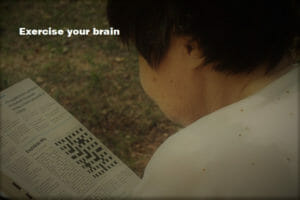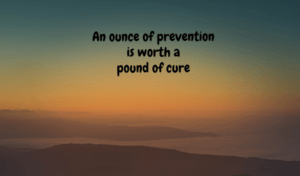Clients come to me for naturopathic advice and help for their symptoms or their diagnosed complaint. It’s my job to work backwards with the goal of identifying the factor or factors that may have caused their symptoms in the first place and anything that might still be contributing to or exacerbating their problems. Often, but not always I might identify specific nutrient deficiencies or food intolerances or there might be obvious lifestyle or environmental factors at play. And now with the expanding awareness of genetics and the availability of testing, we have another avenue to explore when appropriate.
But if you are not careful, it can be easy to get caught up in minute details around particular nutrients or particular dietary exclusions or specific genetic variants or what’s the “best” thing you can do and therefore overlook the importance of the bigger picture when it comes to your overall health and happiness.
So, there is no doubt that correctly prescribed supplements play an important part in your recovery and wellness but let’s not forget the basics too.
As a naturopath, I always look at the whole person and in my opinion, there are some crucial factors that you should not overlook if you want to be happy and healthy.
What you need to do to stay happy and healthy – the basics
Drink water
Water is the lifeblood of every cell in your body. Adequate hydration is crucial for your key elimination pathways (kidneys, liver, bowels and skin). Water is also the main component of all your fluids such as blood, lymph, tears, sweat and digestive juices.
Many of us (and I put myself in this category) are not good at drinking water and it’s possible you don’t realise it because you have become used to living in a constant state of dehydration (or at least under-hydration).
Aim to drink a minimum of 1-1.5 litres a day (water or herbal tea) and more if you are exercising or the day is hot. Even just this simple change, when consistently applied can make a big difference to how you feel.
Move
Just keep moving. Do whatever you can manage. It might be as little as some seated arm-raises or gentle stretches. It could be a walk around the block or to the front gate. Sneak it in any way you can…just don’t stagnate.
Movement is important for stability, flexibility and circulating those body fluids that you have rehydrated. Muscles need to be moved to maintain tone (and don’t just think arm and leg muscle but your heart and your bowel are also muscles that benefit from movement). Movement helps get oxygen into your lungs and bloodstream.
If you can achieve the recommended 30 minutes a day, then great but if not, do what you can do. Start somewhere and keep at it.
Laugh often and laugh loud
There is a reason why they say laughter is the best medicine. A good laugh releases those “happy” endorphins, helps reduce the sensation of pain, can lower blood pressure, relieves stress, gets air into the lungs, boosts your immune system, and exercises your abdominal muscles and heart.
Get connected
And no I don’t mean on social media. I mean in person or at least voice-to-voice. It’s too easy these days to let our connections drop off the radar or be reduced to an occasional “like” on Facebook or a message on WhatsApp.
Having a sense of belonging or feeling like you are part of a community (even if it is the regulars at your local café) is incredibly valuable for your health and happiness. Whether it be family, friends, church, a book club or other common interest set yourself a goal of having real-life and meaningful connections and stick to it.
Challenge yourself and keep learning
Our growth is helped when we push ourselves. So get outside your comfort zone…even just a little bit. You don’t have to abseil if that’s not your thing but just keep learning and testing yourself. Maybe it’s a new skill or hobby, perhaps it’s learning a language, attempting a crossword, putting yourself forward to give a talk or taking up a new sport. Anything new requires you to engage new parts of your brain, forming new neural pathways and it helps to boost confidence.
Get creative
Exercising the creative side of brain can be a challenge especially if, like me, you fall into the “left brain” category of logical thinking. I so admire those creative, innovative, “blue-sky” thinkers. You may never be a bestselling author or artist or concert pianist but have a dabble. Languages, music, writing, art, craft and cooking all require an element of creation and engage different parts of the brain.
Sleep
Some of us need more sleep and some of us need less. Regardless of how much you require to function effectively, if you are getting less than that you will ultimately run into problems. Sleep debt can be hard to recover from. We need our sleep for vital rest and repair activities of the body. If you are propping yourself up with caffeine, sugar and adrenalin boosters then I would encourage you to look at your sleep habits.
If sleep is your issue, 9 ways to improve your sleep might help.
Relax
Many of us spend most of our waking hours “switched on” and with adrenaline pumping. This is not sustainable in the long term. It’s a bit like driving your car in first gear all the time.
You need to “switch off” every day and preferably multiple times a day…for example mealtimes and in the evening before bed.
Failure to dedicate some time to relaxation is not good for your long term health and happiness. It can be the cause of sleep problems, mood changes, impaired decision-making, digestive problems and more.
If you need some tips for relaxation try these tips for coping with stress and unwinding after a busy day.
Eat well
It goes without saying that you are a finely tuned machine that requires the right amounts of the right fuel to run smoothly. So, here are the fundamentals:
- Eat lots of fresh fruit and vegetables (some cooked and some raw), every meal
- Eat more plant food than animal food
- Limit fried foods
- Avoid soft drinks (including energy drinks)
- Limit caffeine
- Limit alcohol
- Avoid margarine and hydrogenated oils
- Limit processed meats (ham, bacon, salami etc)
- Don’t eat crappy chocolate…eat the good stuff (that means dark chocolate) in moderation instead
- Whenever possible, make the meal yourself
- Limit processed foods and you will automatically be avoiding sugar, additives, flavourings, and artificial ingredients
- Aim for variety…the more, the better…a good rule of thumb to start with is don’t have the same food/main ingredient more than once a day (for example, that means avoid toast for breakfast, a sandwich for lunch and pasta for dinner)
- Beware the marketing hype designed to lure you into choosing something disguised as “healthy”.
Be patient…don’t expect overnight changes
It would be so great if there was a magic pill that could just make you all better overnight but there isn’t. Aim for small changes and gradual improvement. Don’t give up if you don’t see overnight results. You need to focus on the long term and accept the obstacles and speed humps you will inevitably encounter along the way. Small, sustained changes add up!
As Seth Godin says “the long way IS the short cut”
Be proactive about your health
The smart person takes care of their tools, their home, their car in order to keep them in good working order for years to come. They don’t wait for things to break down or fail before attending to them.
Make sure you extend that thinking to your body as well. My proactive clients check in with me a couple of times a year (even when they feel well) just to have a professional review of their key health parameters. It’s just preventative maintenance to keep things on track.
What are you going to do to achieve health and happiness?
So there you have it. The basics of good health. Don’t get caught up in the micro detail of your illness or symptoms. Focus on the big picture.
It’s important to get the basics right and then work with your naturopath to address your unique and specific needs through the right nutrients and herbs for you.





